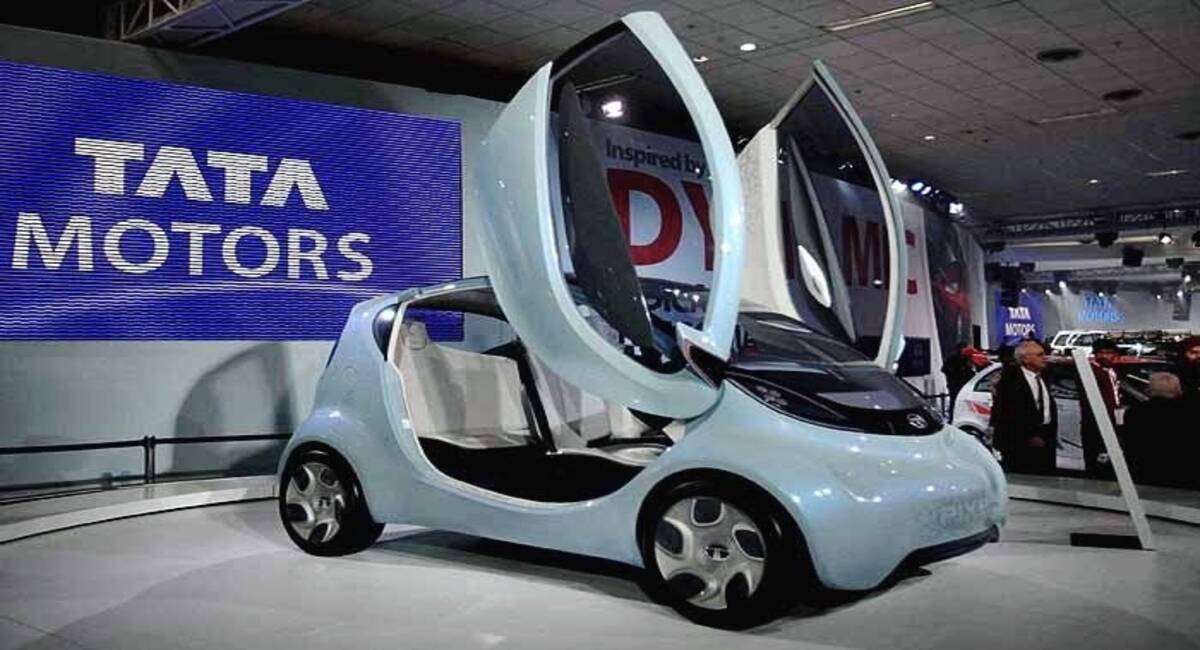The Tata Nano holds a special place in the hearts of many Indians. Launched in 2008 with the ambitious goal of being the “world’s cheapest car,” it captured global attention for its affordability. However, the Nano’s journey wasn’t without its challenges, ultimately leading to its discontinuation in 2018.
With the electric vehicle (EV) revolution gaining momentum in India, a question pops up: could Tata bring back the Nano as an electric car? Let’s delve into the feasibility of a Tata Nano EV and explore the factors at play.

The Allure of an Electric Nano
The appeal of a Tata Nano EV is undeniable. It evokes nostalgia for the original car’s affordability, potentially making EVs more accessible to a wider audience. Here’s why an electric Nano could be attractive:
Further Lowering the EV Entry Barrier: Currently, the starting price for Tata’s most affordable EV, the Tiago EV, sits between Rs 8 lakh and Rs 11.89 lakh (ex-showroom). A Nano EV could potentially bring that price down to around Rs 6 lakh, making EVs a more realistic option for budget-conscious buyers.
City-Friendly Footprint: The Nano’s compact size makes it ideal for navigating congested city streets. This, coupled with an electric powertrain for silent and emission-free operation, could be a winning combination for urban commutes.
The Challenges of Reviving the Nano
While the idea of an electric Nano is exciting, there are significant hurdles to overcome:
Limited Market Potential: The original Nano struggled to find consistent demand due to quality concerns and its “cheap car” image. In the EV market, where features and range are crucial selling points, an ultra-affordable Nano EV might struggle to compete with slightly more expensive options offering better performance and features.
Development Costs: Redeveloping the Nano platform specifically for an electric drivetrain would require substantial investment. To justify these costs, Tata would need to sell the car in high volumes, which might be challenging considering the current EV market size in India.
Balancing Range and Affordability: Achieving a significant range with a very low price point might be difficult. A smaller battery pack for affordability would likely translate to a shorter driving range, potentially deterring potential buyers.
A Look at Potential Features and Rivals
If a Tata Nano EV were to materialize, here’s what we might expect:
Ideal Range: A real-world range of 200-220 km would likely be sufficient for most city commutes.
Essential Features: While the original Nano wasn’t known for its features, a modern electric Nano would likely offer basic comforts like a touchscreen infotainment system, a semi-digital instrument cluster, a rear parking camera, air conditioning, and power windows.
Market Positioning: The Nano EV would likely slot below the Tiago EV in Tata’s electric car lineup. Its closest competitor could be the MG Comet EV, a two-door electric car with a starting price of Rs 6.99 lakh and a claimed range of 230 km.
Will We See a Tata Nano EV on the Road?
Despite the nostalgic appeal, the reality is that a traditional Tata Nano EV with its original form factor and ultra-low price point is highly unlikely. The challenges of development costs, limited market potential, and the need for at least some basic features make it a commercially risky proposition.
However, there’s still a chance that Tata might revisit the Nano nameplate in the future. Here are some possibilities:
A More Premium Electric Microcar: Tata could potentially revive the Nano name for a more premium electric microcar with a slightly higher price point but offering better features and range compared to a hypothetical ultra-budget Nano EV.
Focus on a Different Electric Vehicle Segment: Tata might choose to use the Nano name for a different type of electric vehicle altogether, perhaps a small electric SUV or hatchback positioned above the Tiago EV.
Ultimately, the decision to revive the Nano name for an electric car will depend on Tata’s future electric vehicle strategy and its assessment of market demand.
Historical Attempts and Challenges
Tata’s journey with the Nano faced numerous hurdles, leading to its discontinuation in 2018. Despite earlier hints at an all-electric Nano, past endeavors, including the Neo EV project, failed to materialize commercially. Recent initiatives, such as the Electra EV’s retrofitting of a Nano for Ratan Tata, hint at ongoing interest in a Nano EV.
Potential Affordability of Nano EV
Recent developments in the EV market, including price reductions by Tata and MG Motor, suggest a favorable environment for affordable EVs. With falling battery costs, the prospect of a Tata Nano EV priced around Rs 6 lakh becomes plausible.
Expected Range and Features
A city-centric Nano EV could offer a practical range of 200-220 km, leveraging a lightweight design and modest battery capacity. To align with modern standards features like touchscreen infotainment, digital instrument clusters, and safety enhancements would be imperative.
FAQs
Q: What is the expected price range for the Tata Nano EV?
A: With falling battery costs and market trends, a starting price of around Rs 6 lakh is feasible for the Tata Nano EV.
Q: How does the Tata Nano EV compare to existing EV offerings like the MG Comet EV?
A: While both offer compact dimensions and similar ranges, Tata’s brand reputation and pricing strategy could differentiate the Nano EV in the market.
Q: What are the challenges hindering the launch of the Tata Nano EV?
A: Despite interest and nostalgia, concerns regarding market viability, development costs, and sales volumes pose significant challenges to the launch of the Tata Nano EV.
Q: Could Tata consider reviving the Nano brand for other electric vehicles in the future?
A: While the original Nano may not return, Tata could explore leveraging the Nano brand for alternative electric vehicle offerings aligned with evolving consumer preferences.




